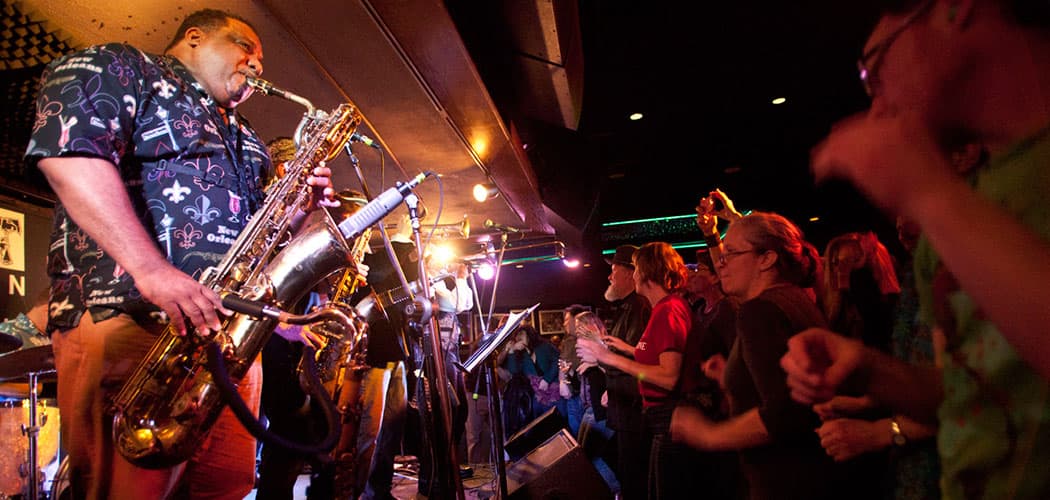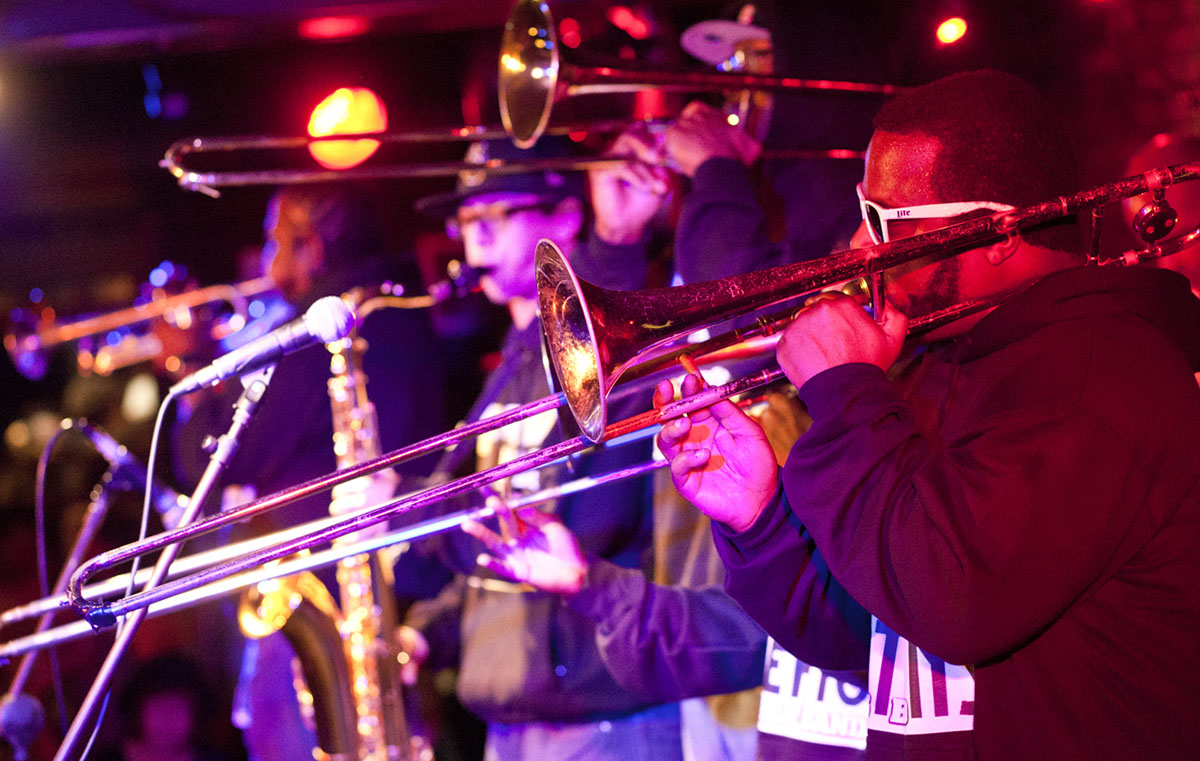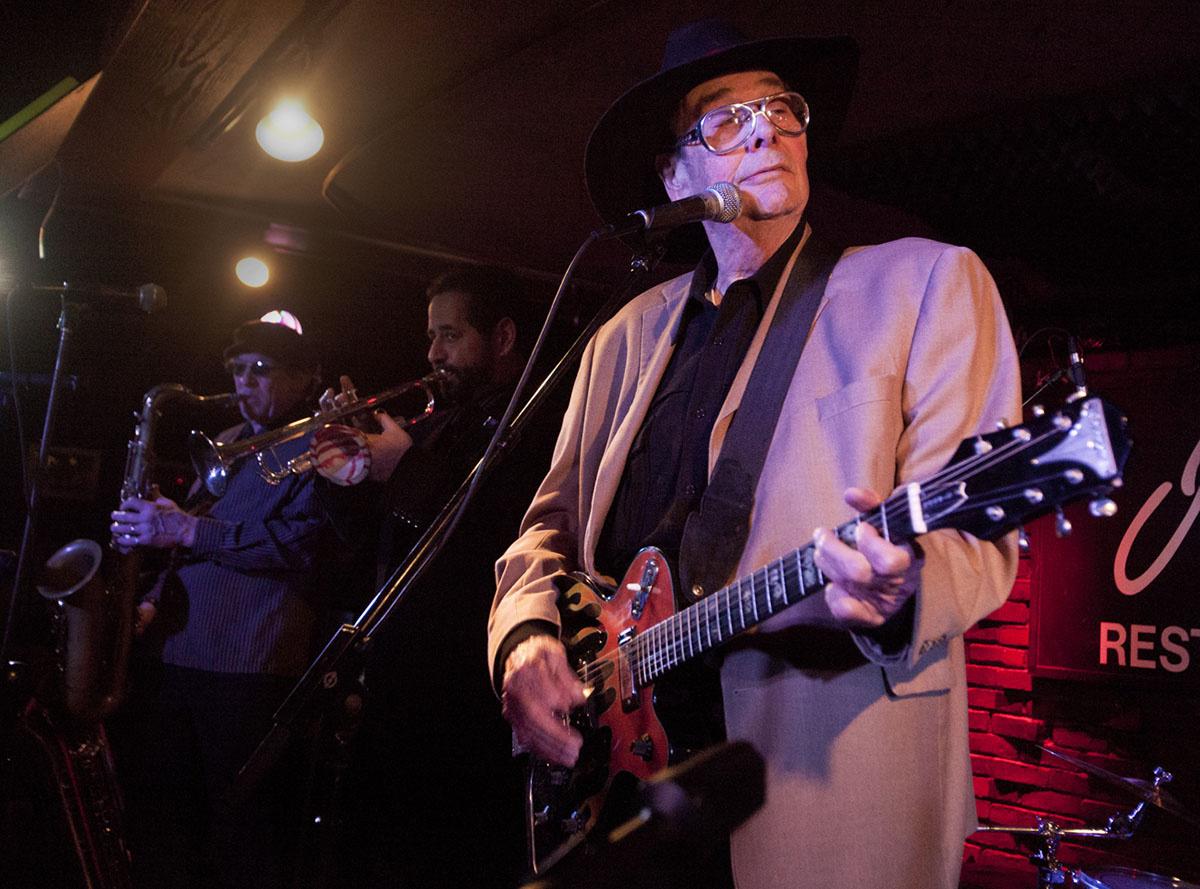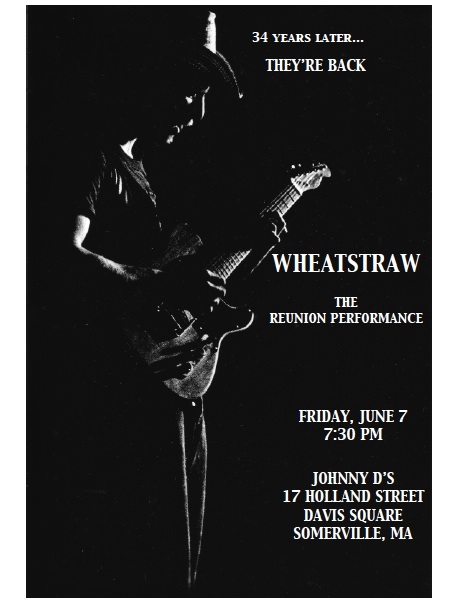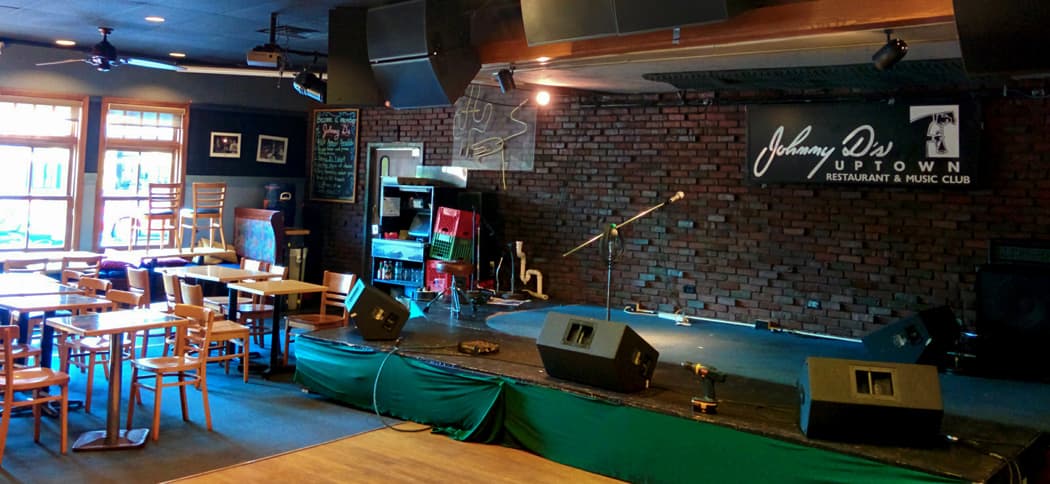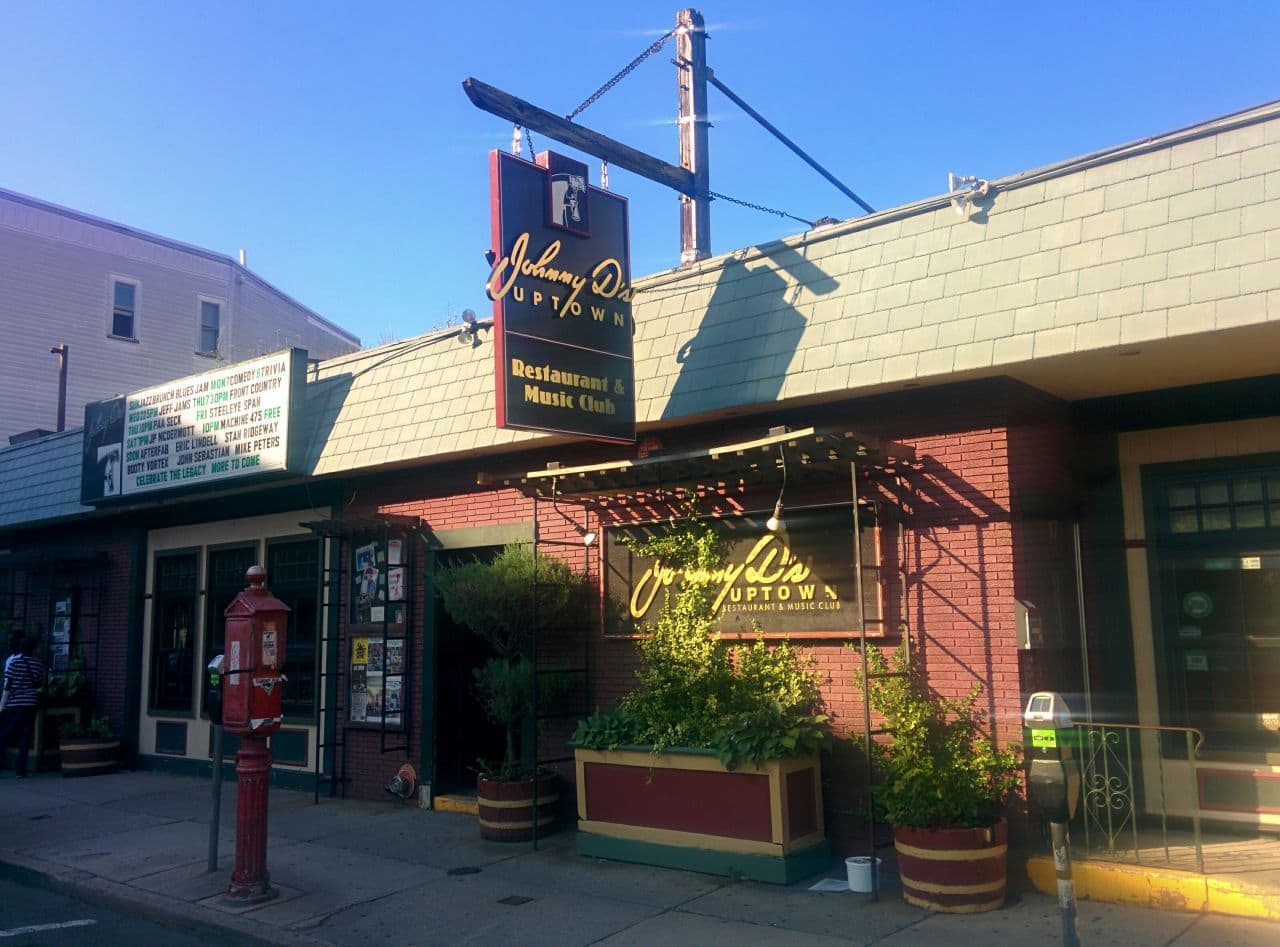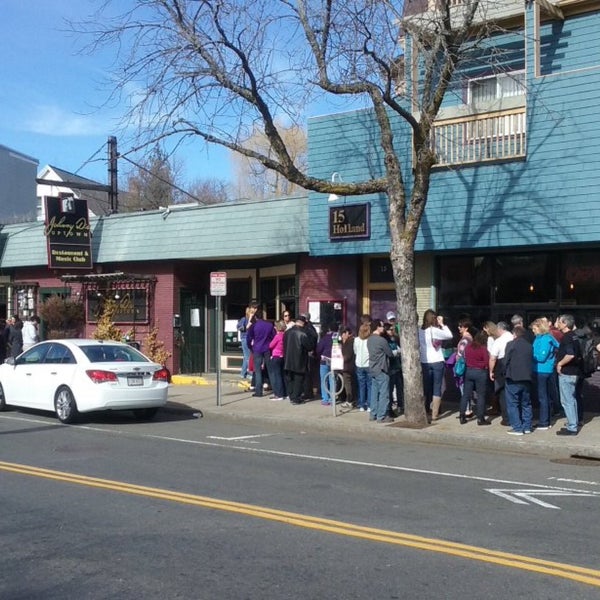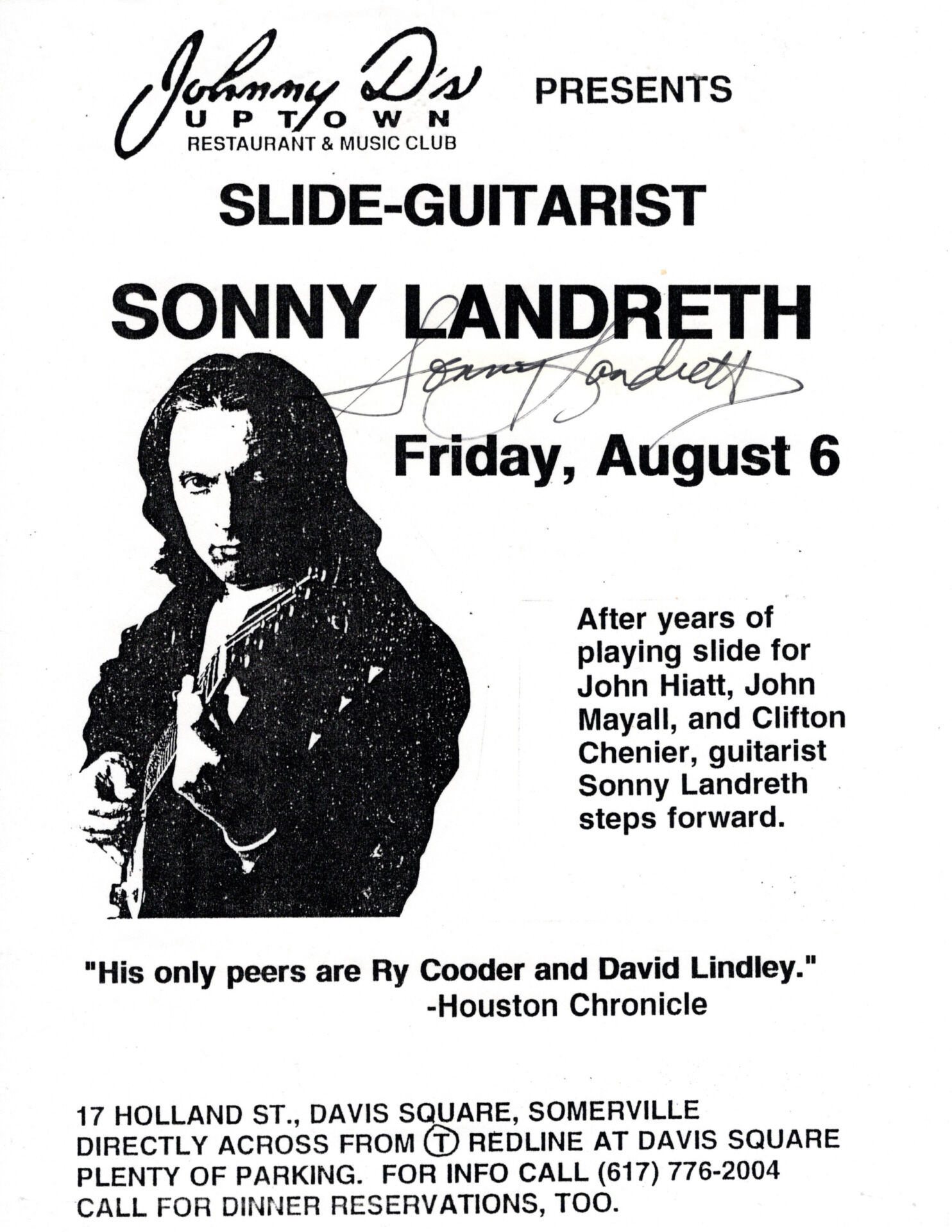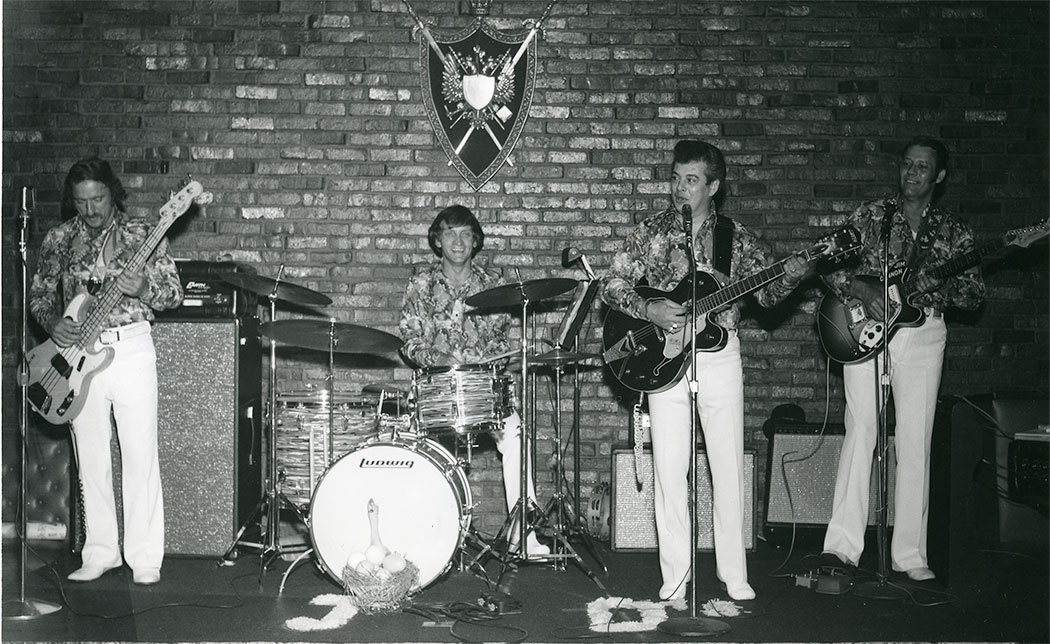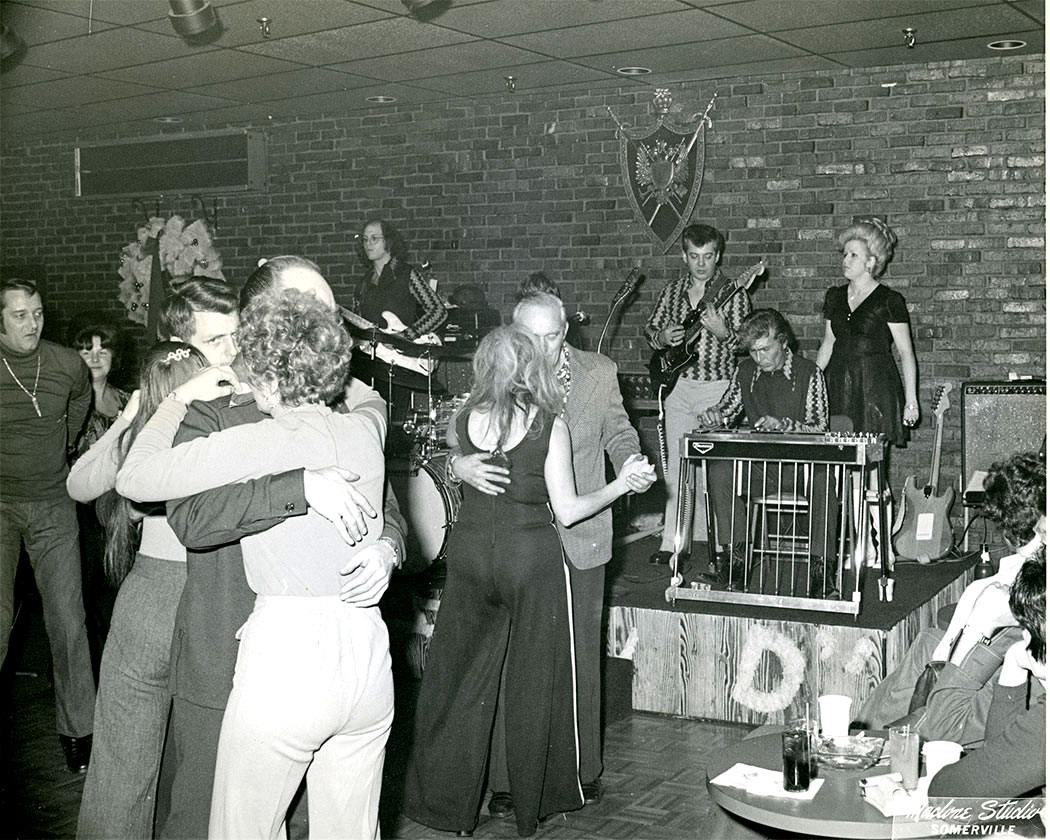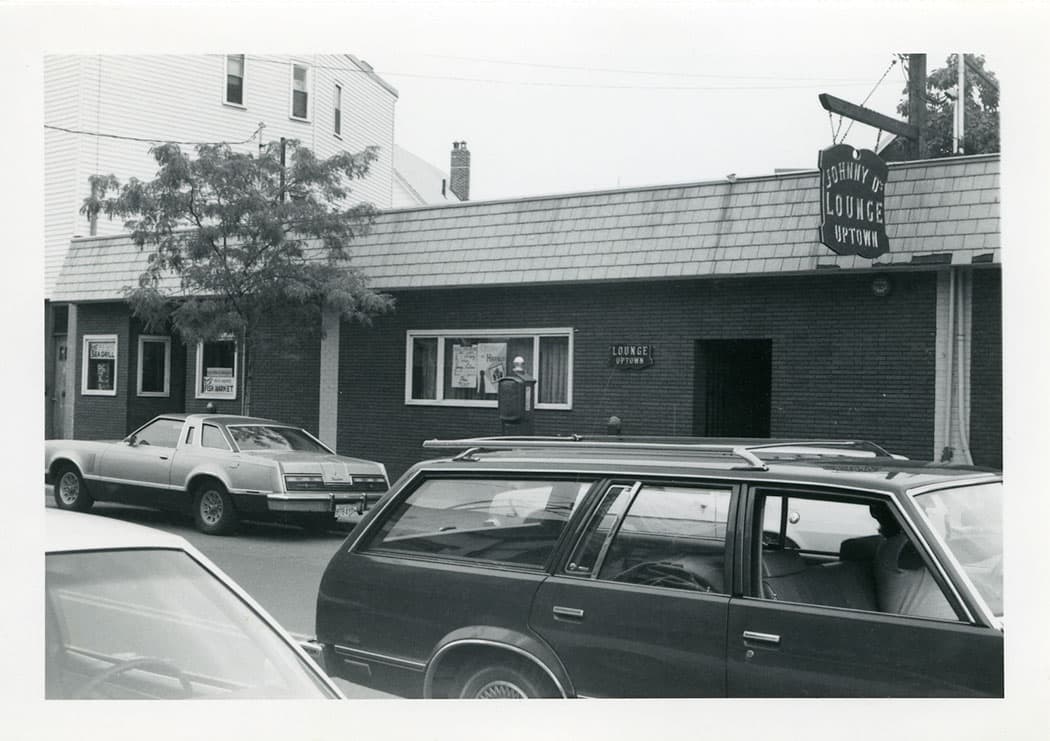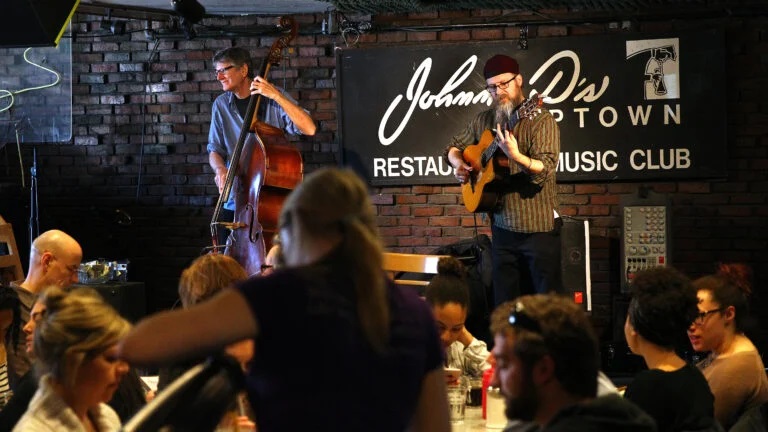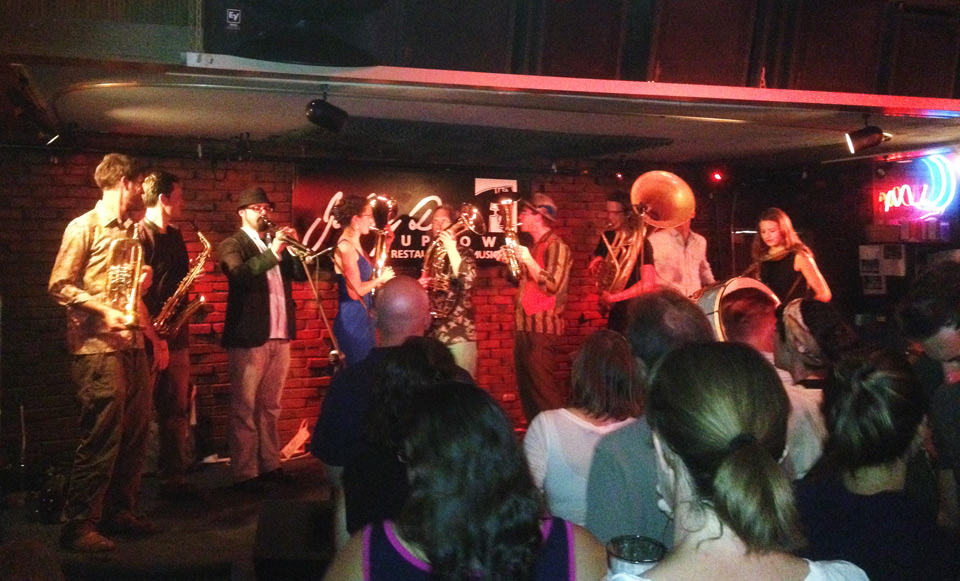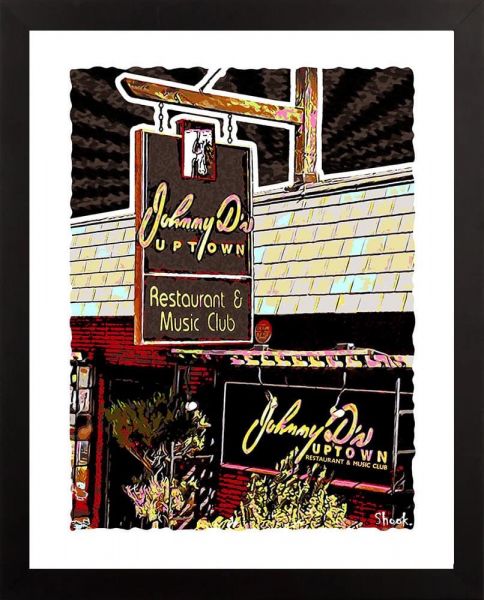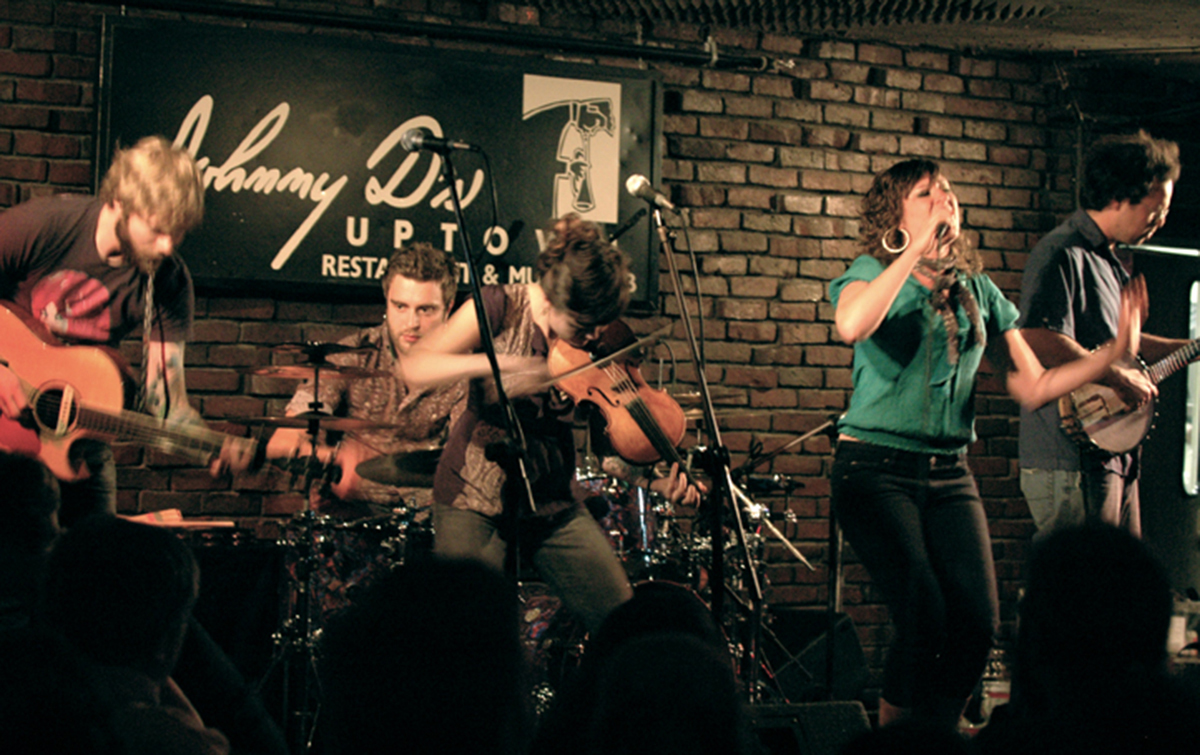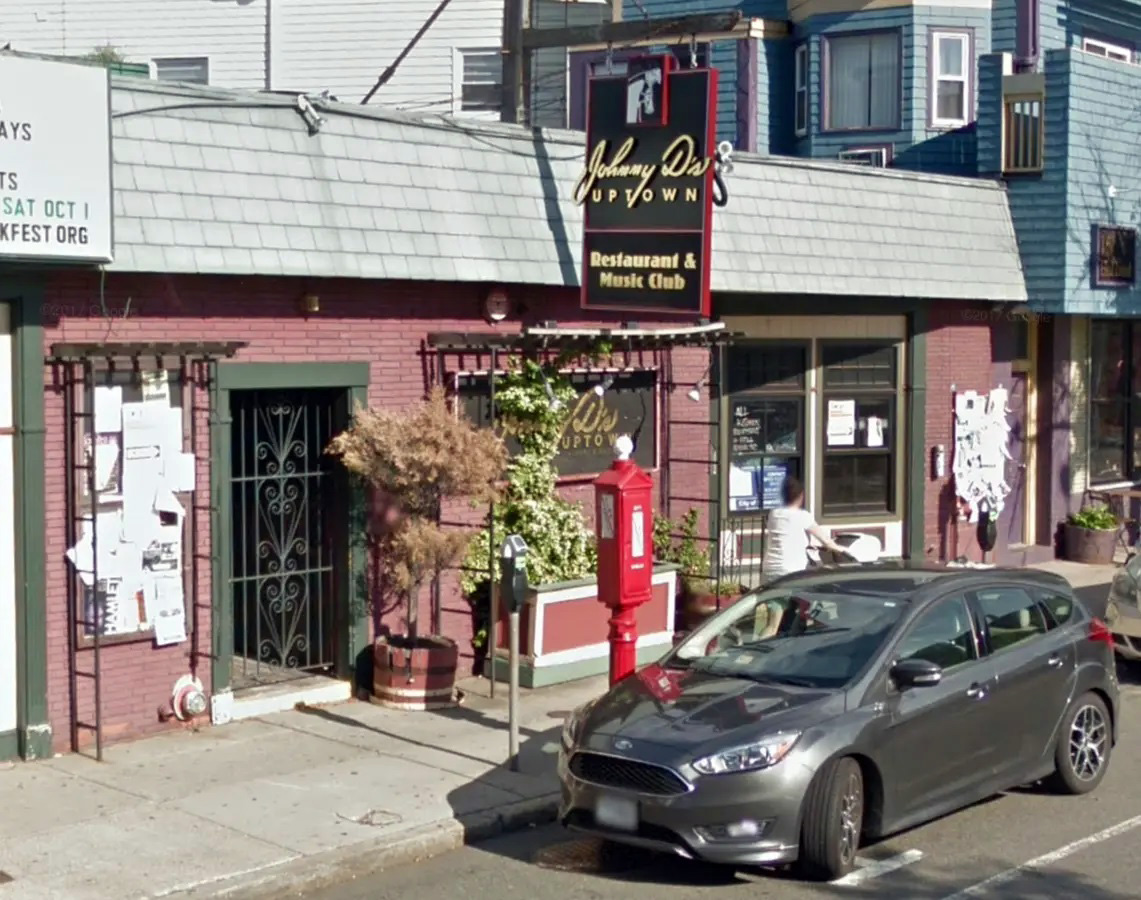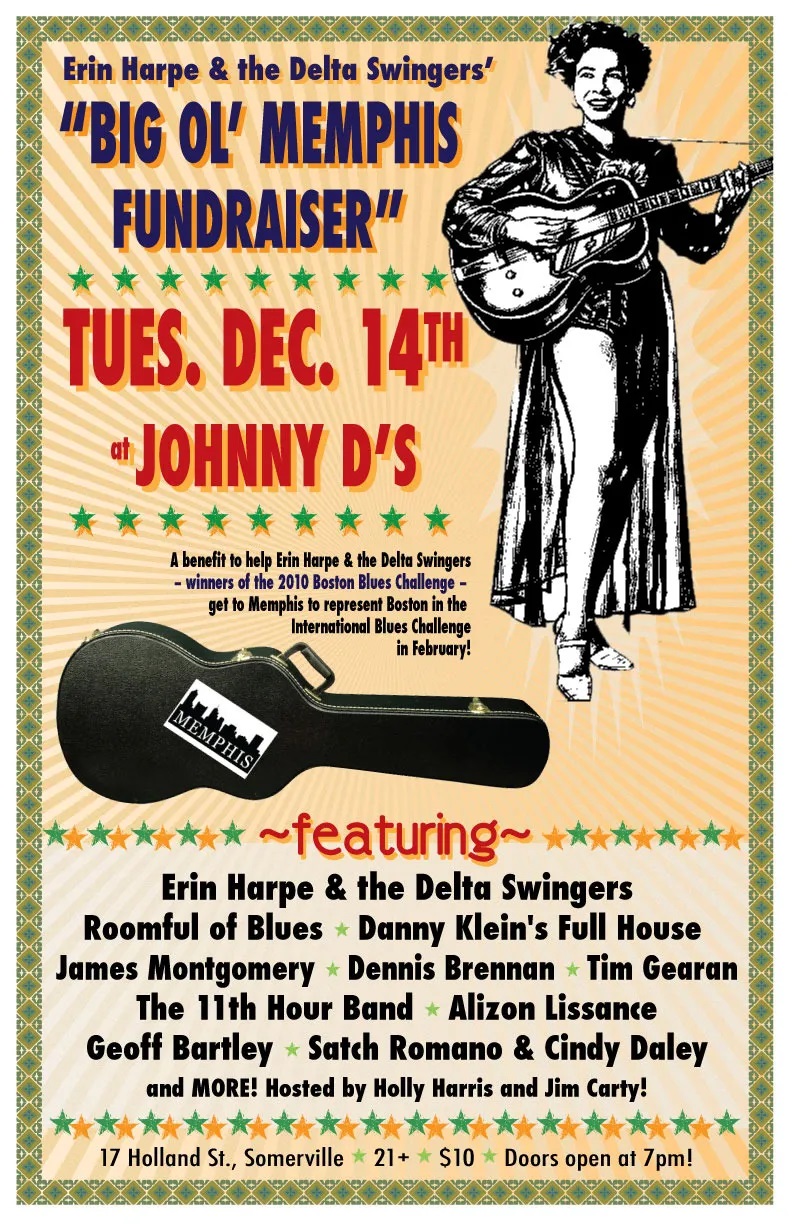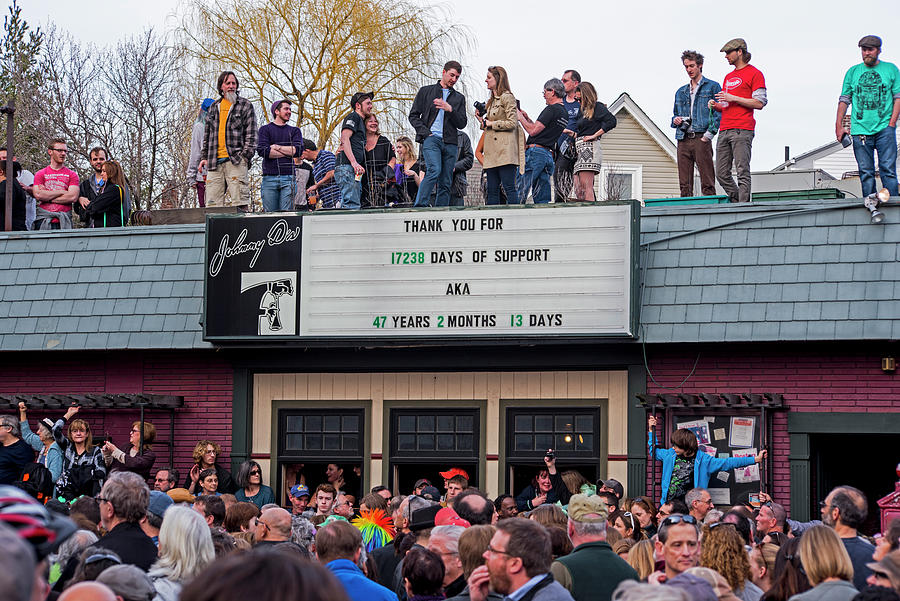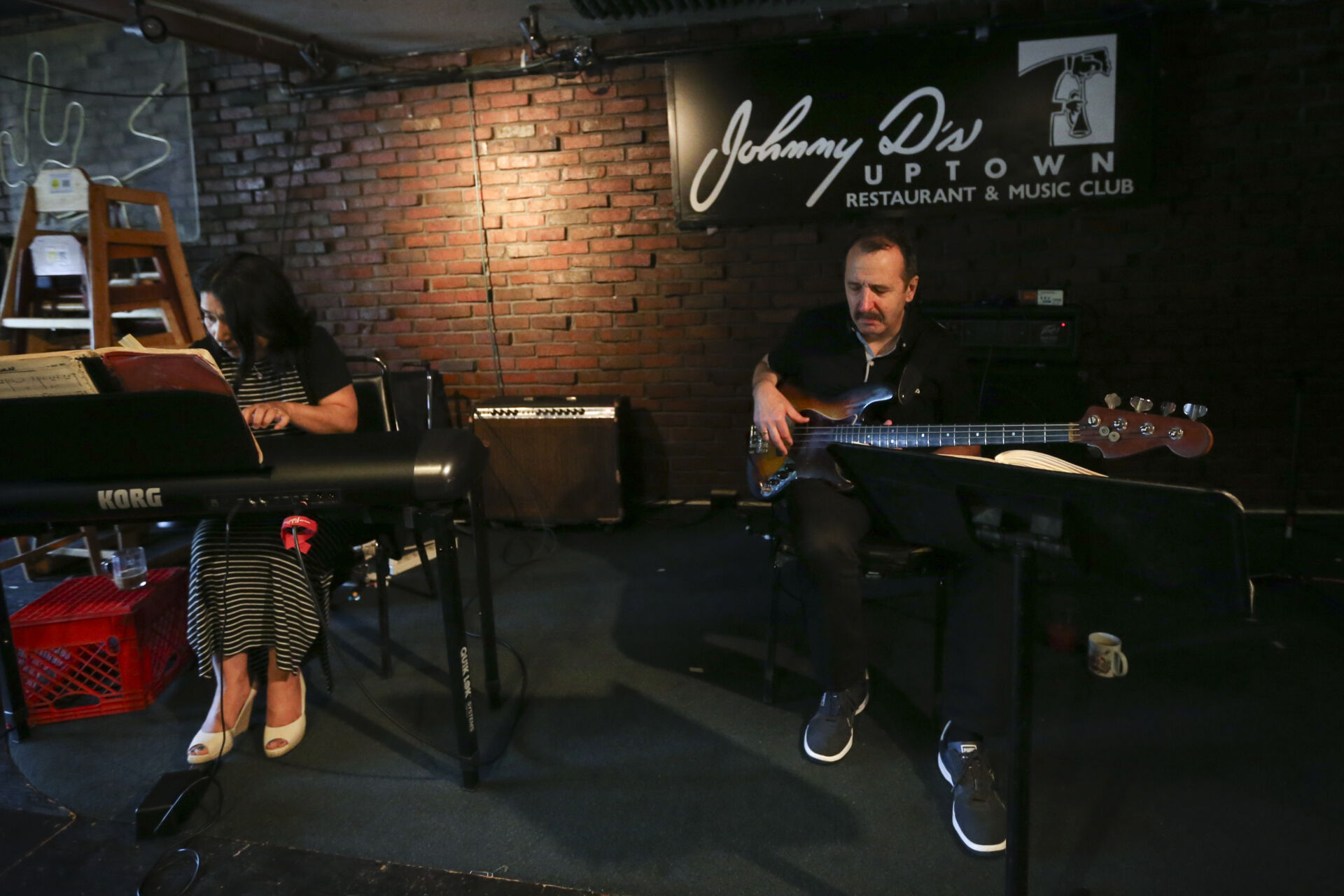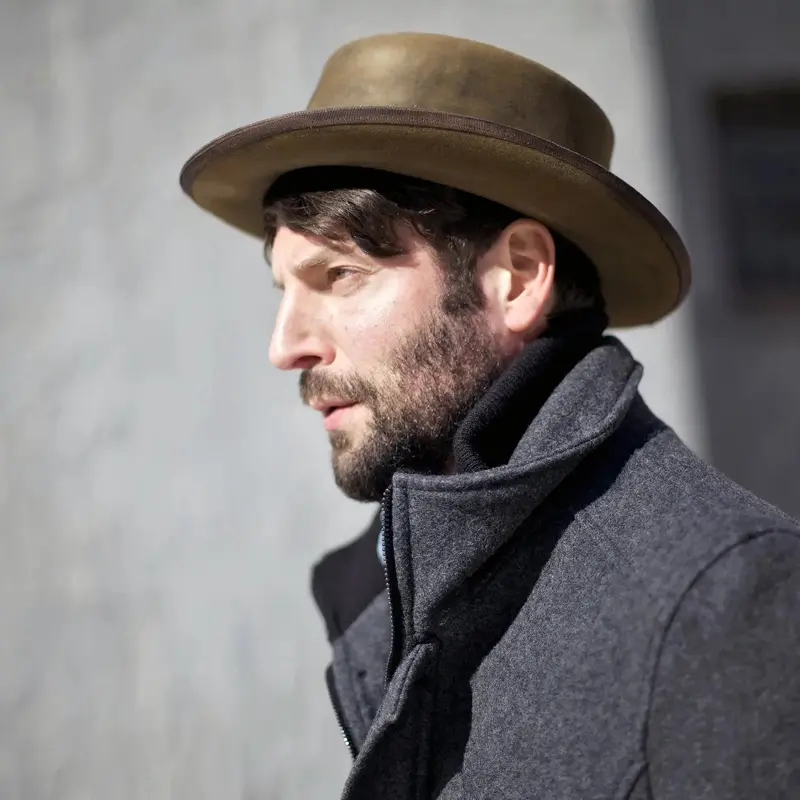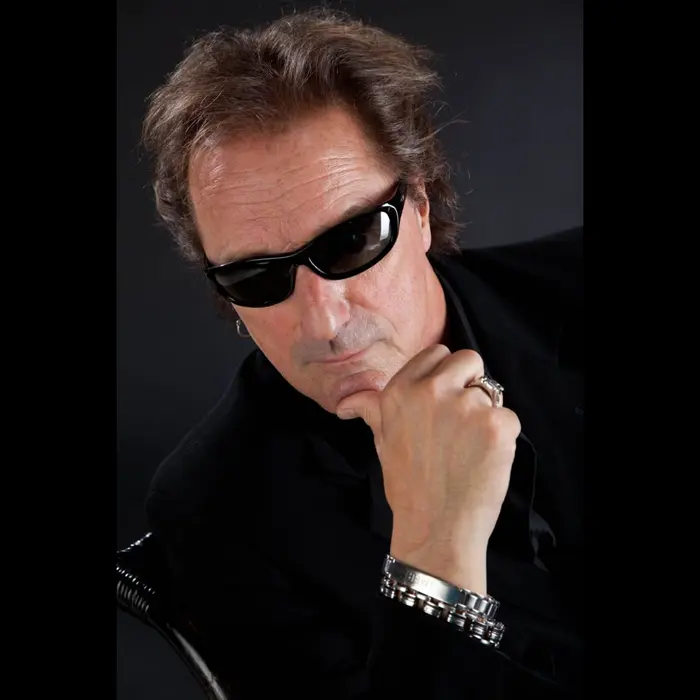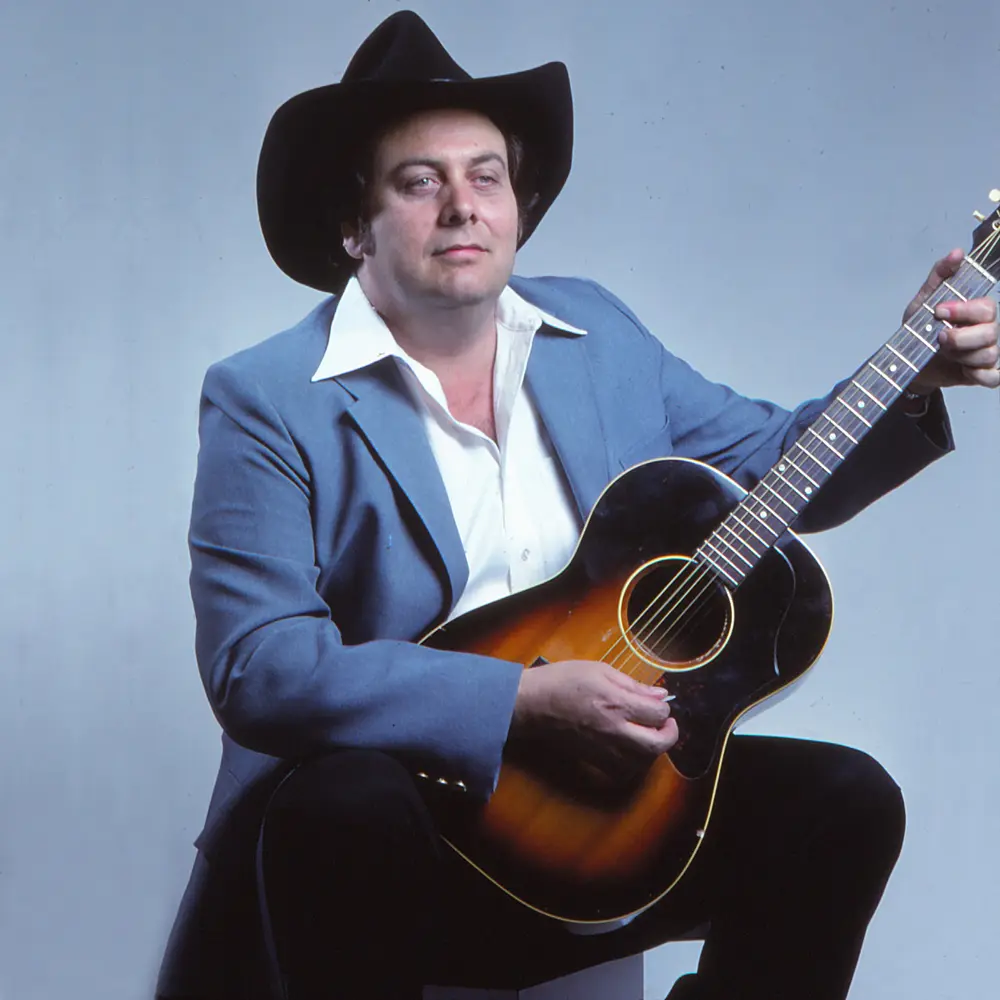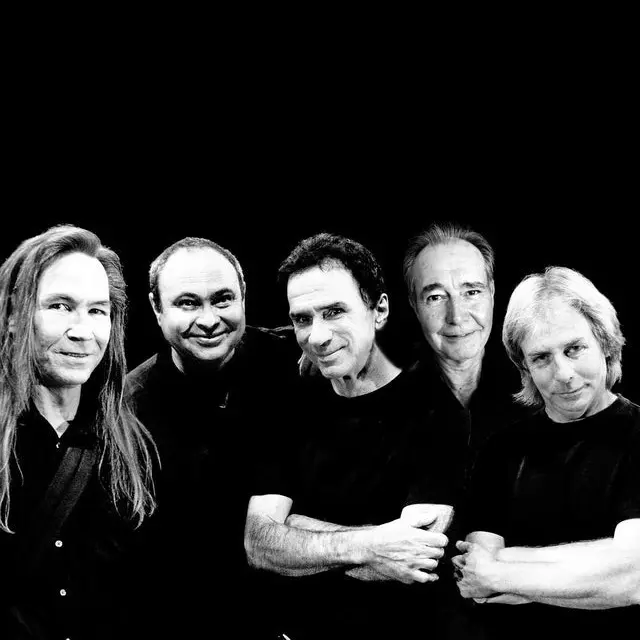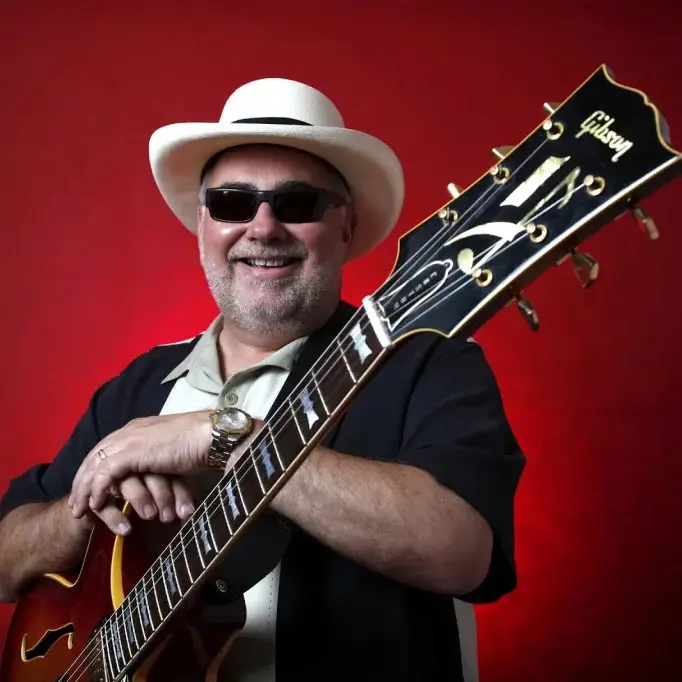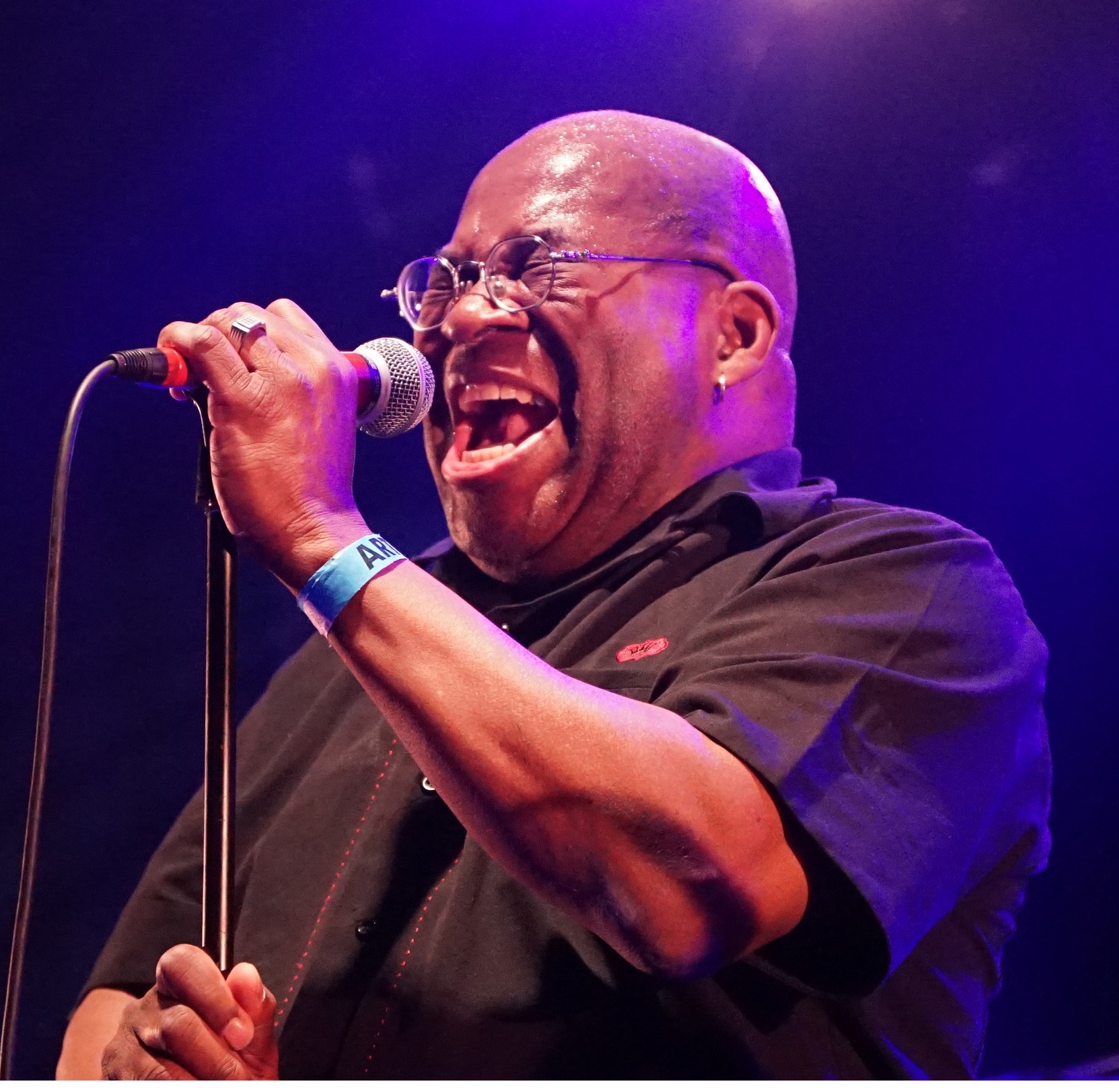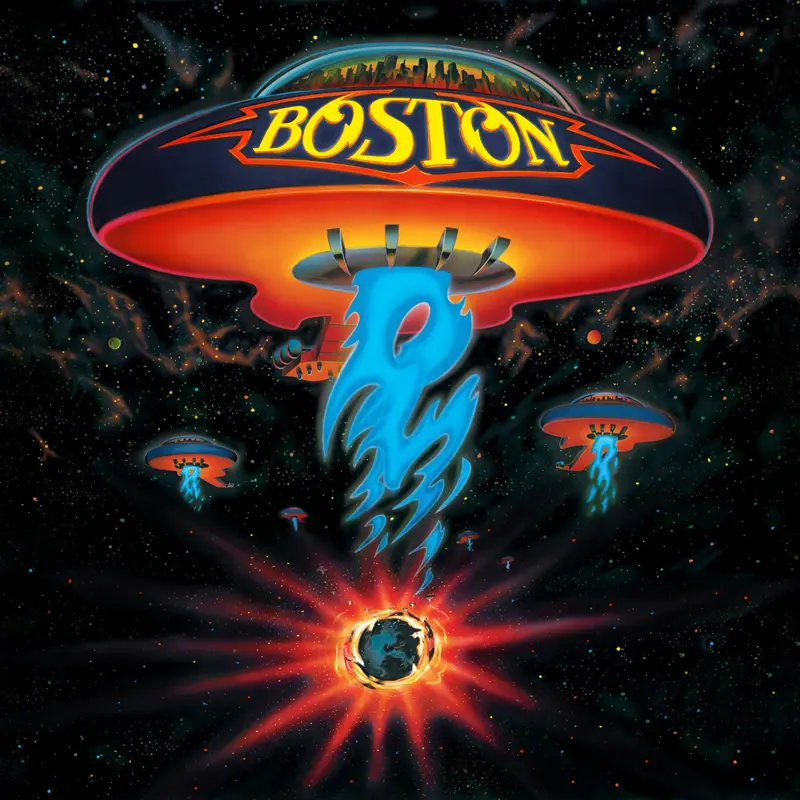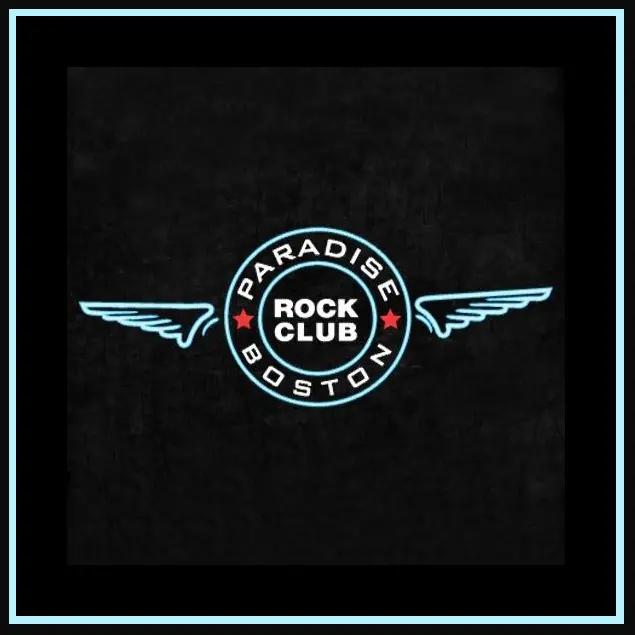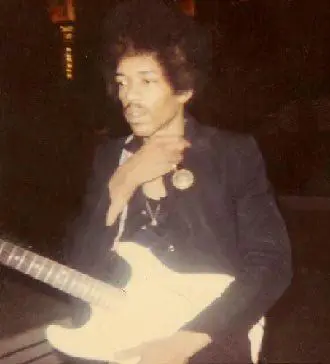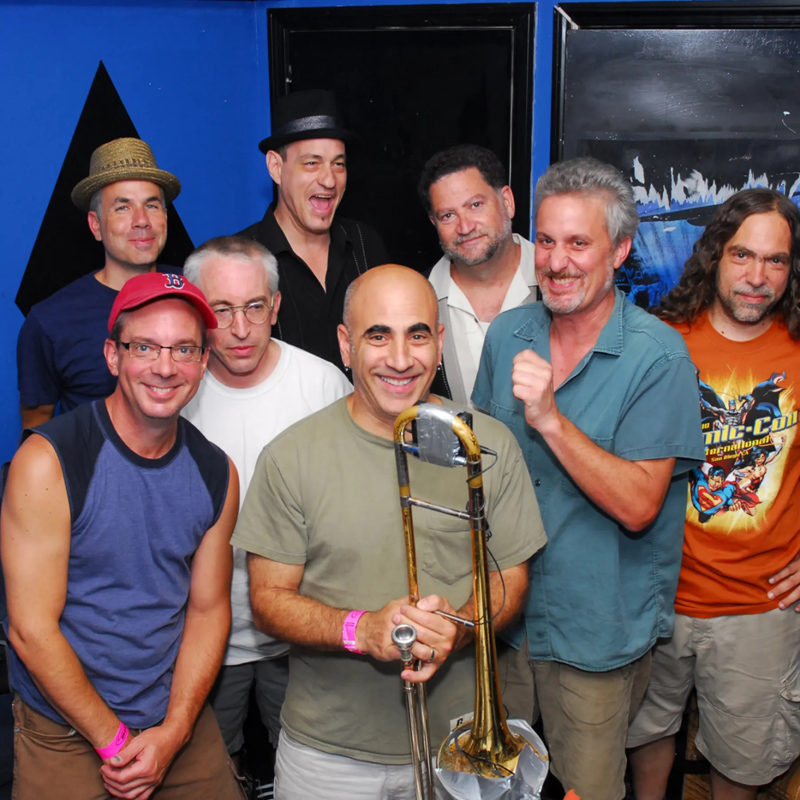Johnny D’s
Drive past 17 Holland Street in Davis Square, Somerville today and you’ll find another snazzy four-story condo taking shape, like all the other ones which seem to be springing up across greater Boston like weeds. But borrow Mr. Peabody’s WABAC Machine, set the clock back a decade or two and you’ll find yourself in front of one of greater Boston’s most famous clubs, a venue that hosted acts of all genres
Founded by John and Tina De Lellis and eventually taken over and run by their daughter Carla until its final day, Johnny D’s Uptown Restaurant & Music Club hosted a lineup of rock, blues, jazz, country and bluegrass artists that would make any booking agent drool. With a capacity of 309, it wasn’t the largest club around – Boston’s Paradise Rock Club holds over 900 and The Channel held 2,700 – but its intimate size allowed patrons a uniquely up-close and-personal experience.
NOTABLE APPEARANCES
Among the acts that appeared at Johnny D.’s were up-and-coming ones (Dixie Chicks, Alison Krauss & Union Station, Ben Harper, Ray LaMontagne, Jeff Buckley), long-established artists (Leon Russell, Luthur “Guitar Jr.” Johnson, George Thorogood, Neil Young, Booker T. Jones, Maynard Ferguson) and Boston-area stalwarts (Barrence Whitfield & The Savages, Bim Skala Bim, The Fools, James Montgomery, Beatlejuice [with the late Brad Delp of Boston], Duke Robillard, Juliana Hatfield, Sleepy LaBeef).
There was often an international flavor to shows, with artists such as Mariza (Fado), Ashwin Batish (sitar), three-time Grammy winner Angelique Kidjo from Benin, Mali’s Vieux Farka Toure (“The Hendrix of the Sahara”) all gracing the Somerville stage. Because everyone could use a laugh, Johnny D’s aligned themselves with the Wilbur Theatre to showcase established and new-on-the-scene stand-ups and satirists such as Barry Crimmins, Lenny Clark, Wyatt Cenac, Jerrod Carmichael, Bobcat Goldthwait and Emo Phillips. There was, quite literally, something for everyone.
BEGINNINGS, “MIX IT UP” PHILOSOPHY
Johnny D’s began life as a neighborhood bar, when John, a former Somerville police officer, purchased the Murphy’s Uptown Café in 1969, renaming it “Johnny D’s Uptown.” He expanded it into an adjacent property in 1974 and added live country and western music to the menu. After his sudden death in the mid-1980s, his children, David and Carla, joined the family business. It took a few years of persuading his wife Tina, but in 1988 they opened a full kitchen and Carla took over bookings, expanding the variety to include a cornucopia of acts from all over North America and abroad.
Carla’s booking philosophy was simple: mix it up. “My methodology was that you can’t get the same crowd every night,” she says. Big, small, on the rise, or fading, all types of performers were always welcome. A country band would be followed by a blues band the next night, followed by a jazz band. Grammy winners played the same stage as local dance bands. “It was all part of the magic that happened in Johnny D’s,” says Carla. “We didn’t put our nose up to any particular music or consider the popularity level a band had achieved. She recalls that when young Ben Harper appeared, “he didn’t draw 40 people.”
ROUNDER RECORDS CONNECTION, BOOKING AGENTS
It was Carla who set up an arrangement with then-Somerville-based Rounder Records to have their acts play regularly at Johnny D’s. Thus, in the late ‘80s, Somerville was introduced to a then-unknown teenage singer/fiddle player from Illinois named Alison Krauss, who became the 27-time Grammy winner known around the world today. “They covered it all and with quality and integrity and they were always great to the artists and had respect for them,” says Rounder co-founder Ken Irwin. “It was just a place that people liked to play.”
Carla credits much of the diversity of the shows to her booking agents over the years including John Peters, Flo Murdock, Kevin Baker, Bridget Duggan, Pat Curley, Randi Millman and Dana Westover (the longest running booker, who doubled as Johnny D’s sound engineer). “If it wasn’t for Dana’s dedication in terms of time and heart, I am not sure if I would have been able to get half as far,” Carla says. While she outlined the big picture regarding the mix of artists, Dana and the others were “the real erudite music scholars,” according to Carla, and she credits “the great” Northeastern Coop interns” for spreading the word on shows and keeping the Johnny D’s team up to date on the latest music.
COMMUNITY SPIRIT, ECLECTIC AUDIENCES, VARIED MENU
Throughout Johnny D’s history, the De Lellis family was known for running a tight ship while never forgetting their roots and the importance of looking after their neighbors. “Every year my mother would have us stay outside the bar for the Memorial Day parade and we’d hand out water to the marchers and the passengers in the parade cars,” Carla says.
Loyal patrons would come from near and far for the regular Saturday and Sunday Jazz brunches, listen to a show put on to showcase homeless singers, tear up the dance floor to the coolest funk or zydeco the area (or New Orleans, for that matter) had to offer, or just hang out with friends. The crowd was as eclectic as the acts, with suburbanites rubbing elbows with local bikers (who knew enough to pay heed to Tina at all times) and the Johnny D’s menu was a reflection of the diversity. “Before it was even trendy, we used cage-free eggs and free-range meat, and we always had vegan and vegetarian dishes,” Carla says. Steve Nelson of Superhoney once recalled how different Tina was from other club owners he met. “She was a refreshing change from the area’s live music culture, maintaining a family-run operation and embracing blues-soul-roots acts that most clubs routinely ignore,” he said.
PASSING THE TORCH
David passed away in 1998, followed by Tina in 2008. The club honored Tina with a darkened stage and a glass of hot water and lemon at her trademark barstool, while neighbors and friends from near and far shared tributes and stories. Carla is very clear that were it not for the work of her father, mother and brother, Johnny D’s never would have lasted long enough to warrant inclusion in the Music Museum of New England.
The Somerville of 1969 was not the Somerville of today and it was not for the faint of heart. It took strong, universally-respected personalities like John and Tina De Lellis to establish the solid roots of Johnny D’s. “Only because of their hard work could my brother and I take the place to the next level,” Carla says, adding that her parents’ dedication to running the financial end of the club allowed her to take chances on unknown acts. “I never could have done any of those shows without them,” she says.
WINDING DOWN, CLOSING, PARADE, LEGACY
After her mother’s death, Carla carried on for another eight years, ultimately deciding in July 2015 that it was “time for a change.” The club was still quite profitable but, after spending her entire adult life in the business, she felt that she’d had earned the right to try other things. Mother to four children, there were just not enough hours in the week to do it all. “As I contemplate my stage in life and my children’s security, along with the market, the time is now right to develop the property,” she wrote on the Johnny D’s Facebook page.
The weeks and days leading up the closing of Johnny D’s brought friends and patrons back to the much-loved venue. For example, upon hearing of the closing, a Franklin couple who had their first date at Johnny D’s (in 1991 at a Barrence Whitfield show) rounded up their friends (and the bartender) from that fateful night 15 years earlier and met up for one final show for old time’s sake. “The hardest part of [the decision to close] was taking away the ‘home’ away from home that Johnny D’s has become for so many of us,” Carla said.
It was truly fitting then that on March 13, 2016 – after almost 17,238 days (over 47 years) of filling Somerville’s Davis Square with a potpourri of music styles – Johnny D’s Uptown Restaurant & Music Club was sent off into the sunset with a parade through the neighborhood (led by Boston’s Revolutionary Snake Ensemble), which began at the landmark club and proceeded across Holland Street and into nearby Seven Hills Park. The club just was not big enough to hold all of those who wished to say farewell. To the end, Carla supported the little guy. “I want to tell people to support small venues because small venues doesn’t mean small talent,” she told The Boston Globe.
Though gone for several years now (the building itself was torn down in November 2017), the memory of Johnny D’s Uptown Restaurant & Music Club is still alive. That condo building I mentioned at the top of this piece will be named “Johnny D’s Uptown Gardens” and when finished will have a bit of its history visible on the front. The club’s still-active website and Facebook page (with more than 12,500 followers) speak to Johnny D’s popularity and the cherished memories of some unforgettable times and truly great music in Davis Square.
(by Lincoln Purdy)

